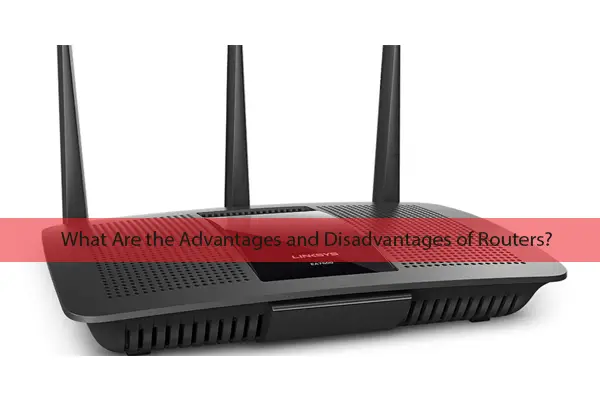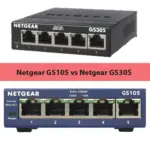What Are the Advantages and Disadvantages of Routers?
What are the advantages and disadvantages of a router? Through the use of dynamic routing algorithms, router networks can select the optimum route across the internetwork.
Routers come in a variety of sizes, from modest house switches to massive edge switches that connect numerous businesses.
In any case, this type of traffic management makes room for obstructions as well. One of them is a security flaw. Therefore, it is important to weigh these benefits and drawbacks before deciding whether to buy a switch. Here, this post provides details on the benefits and drawbacks of the router so that you can learn more about it below.
What are the types of Routers?
Routers are coordinating devices that link two different organizations. For example, your house switch connects a private neighborhood association to your web association. In addition, it performs several tasks that are necessary for creating and maintaining a local organization. A router, as opposed to other forms of systems management tools, can competently choose the direction of source and objective. Using the steering table, all of the bundle direction is completed.
In order to maintain data moving back and forth between networks and to keep networks connected to the Internet, routers serve as both a device and a network’s gateway. Learn about the many router kinds used in computer networking. In actuality, several people recommend buttons for the greatest operation of the newest correspondence arrangements. Router categories:

See More: How To Hide Browsing History From WiFi Router?
Wired router
Box-shaped devices called wired routers are used to establish wired or cabled connections with computers. Basically, a modem connection port is called wired router which is used to receive different sets of ports and internet data packs.
In order to provide communication between computers in a network, wired routers employ (SPI) firewalls.
Wireless router
For the same reason as a wired network, a wireless router receives Internet data packets directly from a modem via a cable.
Wireless routers, on the other hand, use one or more antennae to distribute data packets, as opposed to sending data over cables to PCs.
It contains packets of binary data, or sequences of 1s and 0s, which are translated into radio signals and wirelessly disseminated by antennae.
These radio signals can then be picked up by a computer and converted back into binary code. A wireless router creates a wireless local area network, as opposed to a wired router, which creates a wired local area network (LAN) (Wi-Fi).
Wireless routers frequently use Wi-Fi Protected Access (WPA) security and wireless media access control (MAC) address filtering to safeguard the WLAN.
Routers at the core and the edge
A core router is a wired or wireless router. Core routers generally in large size and perfectly it routing the subnetwork. Where an edge router work as a branch router. You don’t get any security issue on core router but edge provides that. Edge focus the speed of network and complex on its configurations.
Virtual router
If you are searching for a wireless router, I suggest for virtual router what works as the default router to sharing data. You can find virtual router manager app in google and can download it.
What Are the Advantages and Disadvantages of Routers?
7 Advantages and Disadvantages of WiFi Router| Pros & Cons of WiFi Router in below
Advantages of Routers
There are many advantages of routers in networking; we list them all here.
1. Association
A switch’s primary function is to distribute a single organizational association over several devices. By using this, several clients can be connected to the web, increasing overall profitability. Additionally, switches have the ability to connect various organizational structures and media.
2. Security
Security Since using a modem to connect to the internet directly exposes your computer to a number of security risks. So that the environment is somewhat secure, switches can be used as a transition between two companies. Even if this isn’t a replacement for an antivirus or firewall, it is nonetheless admirable.
3. Dynamic Routing
The Routers use dynamic guiding techniques to promote network communication. The ideal route that is accessible for the internetwork is decided by dynamic directing. Additionally, it creates impact and broadcast areas. Overall, this might be possible to reduce organizational traffic.
4. Bundle Filtering
Routers offer a variety of services, including package exchanging and parcel separating. They channel the organization using a variety of separate rules. According to these requirements, the bundles are either approved or rejected.
5. Plan for Reinforcing
Switches use optional components to avoid problems with directing rush hour traffic in the unlikely case that one of the external organization segments fails. This is used by organizations, especially those with a large scope, to manage traffic well.
6. Use of NAT
The usage of Network Address Translation by routers (NAT). NAT routers can share a connection by employing a single public IP address and a common set of UDP ports. Major corporations also find it extremely difficult to connect to the internet without NAT..
7. Reconciliations
Modems and routers may typically work together. This ensures that Wireless Access Points are provided to create small businesses.
Disadvantages of Router
The router faces a variety of difficulties and restrictions in networking; each one is described below.
1. Speed
Routers look beyond the first two layers of information, unlike repeaters and scaffolds. It fully examines every piece of information, from the physical to the organizational layer. Therefore, the relationship can end up being mild. Switches can also be used to allow many PCs to share the organization when the switch is in a “Connection Wait” state. This may further reduce the relationship.
2. Price Routers
Routers are more expensive than some other tools for systems administration. This includes security, extension, and the focal point. In light of this, routers are typically not the most affordable option. More than any other networking component, routers are expensive. Security, hub, and bridge have been included in this. Therefore, from a financial standpoint, routers are not always the best choice.
3. Similarity
Additionally, there live similar problems with routers, notably with the 5GHz recurrence. You cannot benefit from its advantages unless your PC and its ports support designs of 5GHz repetition. Therefore, you should consider choosing a less expensive Router.
4. Unwavering Standard
The time transitions are occasionally off. Even yet, a few contemporary gadgets use the 2.4GHz frequency, which is typically turned off. Those who reside in apartments and condominiums frequently have the option of separating in this manner.
5. Usage
A typical router needs a lot of NAT configuration and initial setup. Additionally, in any case, a private IP address should exist distributed for the simplest association. In the event that more services are available, more designs are also required. The arrangement becomes fundamentally more complex as a result of this.
6. Limited data transmission
The switches use dynamic guiding techniques for correspondence-related reasons. This may result in additional administrative costs. Large amounts of transmission capacity are consumed by systems administration costs, resulting in the inadequacy of transfer speed. Switches constantly update the organization in addition to maintaining the steering tables. Utilizing data transfer capacity can result from this as well.
7. Conventional Wisdom
Routers only use routable conventions to carry out their functions. A routable convention can provide the devices with excellent IP deliveries so they can live recognized across networks.
Final Thought
One must comprehend the fundamentals of routers, as well as the distinctions between router and firewall, bridge, switch, and virtual router, in order to comprehend the benefits and drawbacks of routers. What are the advantages and disadvantages of routers? There are some points about the advantages and disadvantages of a router explained above in this article.
We now know that a router is a type of hardware network utilized within a network or network for transmitting, receiving, and analyzing internet data packets. Compared to a hub or switch, it offers additional network features. Because the router makes security possible, we can use the firewall to protect the PC from an attacker. It has firmware software, which the manufacturer needs to update.







![Tp-Link WiFi 6 Router AX1800 vs AX1500 [Which Is Better?] Tp-Link WiFi 6 Router AX1800 vs AX1500](https://thewifirouter.com/wp-content/uploads/2022/06/Tp-Link-WiFi-6-Router-AX1800-vs-AX1500-150x150.png)

